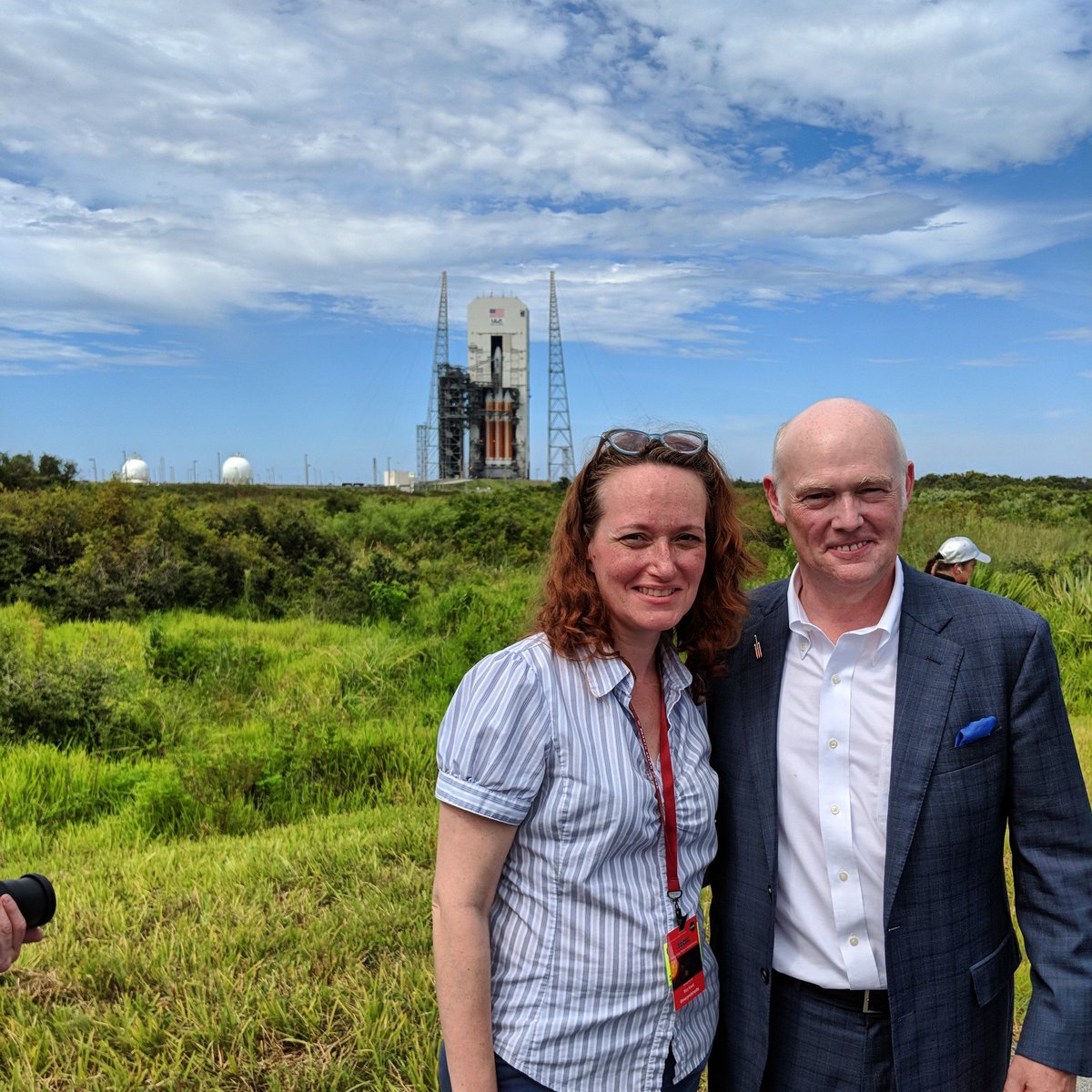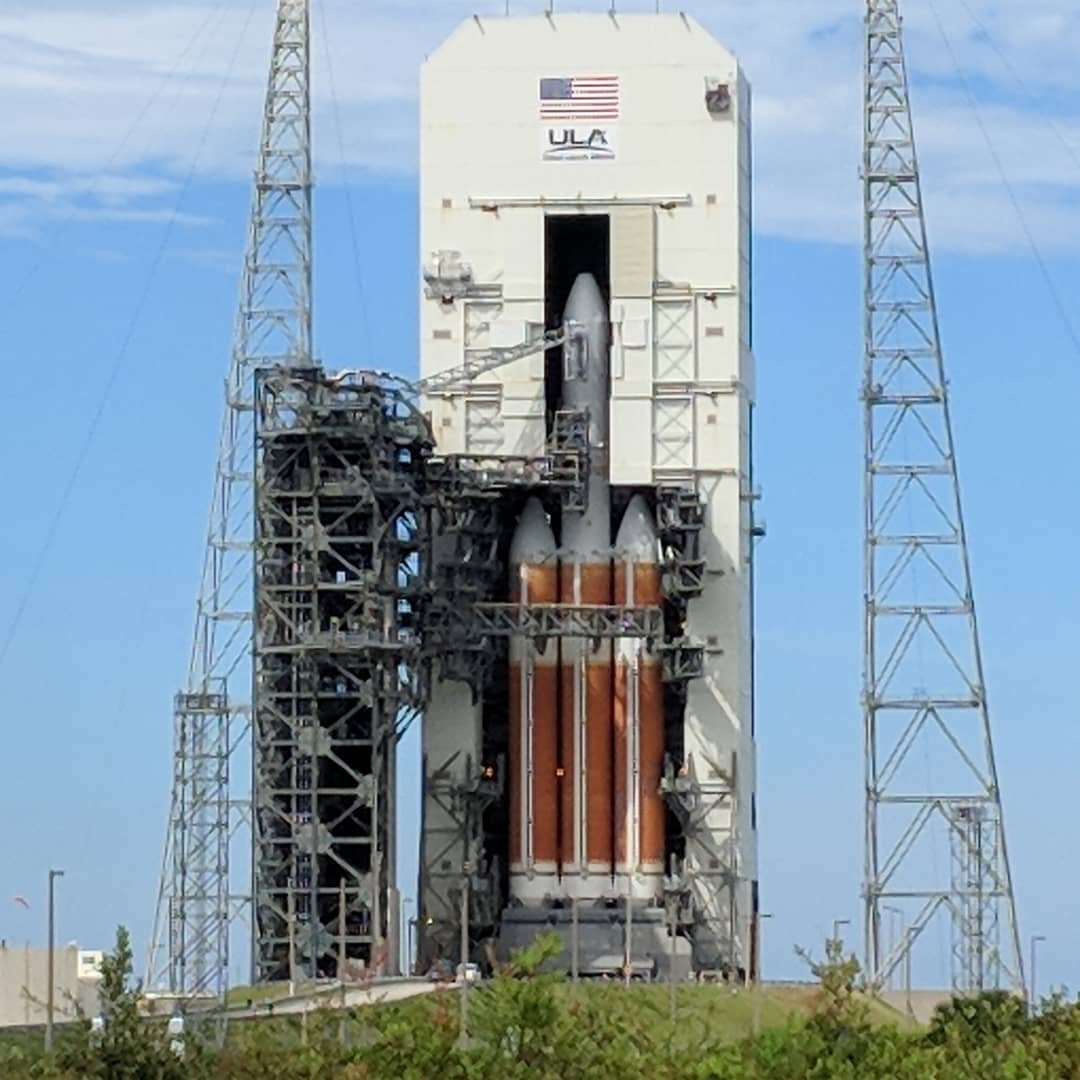We're sitting down for a Q&A with Dr. Nicky Fox, @Dr_ThomasZ, and Dr. Eugene Parker about the Parker #SolarProbe
Dr. Z just did the mic check count with triangular numbers.
#NASASocial
Dr. Z just did the mic check count with triangular numbers.
#NASASocial
Dr. Z says he was at a conference and someone giving a talk said, "It's consistent with Parker's theory."
A voice. "Which one."
"Well-- I mean, the famous Eugene Paker."
Voice. "That's me. I wrote more than one paper. Which one are you citing?"
#NASASocial #SolarProbe
A voice. "Which one."
"Well-- I mean, the famous Eugene Paker."
Voice. "That's me. I wrote more than one paper. Which one are you citing?"
#NASASocial #SolarProbe
Dr. Parker, "I was sitting in my office doing something, probably not work, or at any rate nothing useful. They called to if they could put my name on the #Solarprobe. I was stunned. After we got off the phone I had to run through it again. But, that's what he said."
#NASASocial
#NASASocial
"When I was young, and I was once, it was not a foregone conclusion that just because you got your instrument on a rocket that you would have a success. We had perhaps a 50% success rate for launches." Dr. Parker
#NASASocial #SolarProbe
#NASASocial #SolarProbe
"I will believe that there's a successful launch when there's successful launch. But I'll bet you ten bucks that there's a successful launch." Dr. Parker, (who is adorable and I am a little in love with him.)
#NASASocial #SolarProbe
#NASASocial #SolarProbe
What advice would you give?
"You don't want to get into science. Unless-- it fascinates you on the work level. Do you take pleasure in your studies? Do you get satisfaction in learning? Then I would recommend a career in science."
#NASASocial #SolarProbe
"You don't want to get into science. Unless-- it fascinates you on the work level. Do you take pleasure in your studies? Do you get satisfaction in learning? Then I would recommend a career in science."
#NASASocial #SolarProbe
"Your job is to force your mind to conform to facts rather than forcing facts to conform to your mind."
Dr. Eugene Parker
#NASASocial #SolarProbe
Dr. Eugene Parker
#NASASocial #SolarProbe
"It is worth mentioning that the sunward side of the heat shield will be incandescent"
Dr. Parker
#NASASocial #SolarProbe
Dr. Parker
#NASASocial #SolarProbe
We know that the heat comes from waves, but this is over-simplified. It's like saying that rubbing your hands together causes heat from friction. Waves cause friction. But the interactions are where the science questions get interesting.
#NASASocial #SolarProbe
#NASASocial #SolarProbe
"In the late 1940s I was looking at sunspots and why they formed, and thought 'Well, it'll be easy to knock this question out.' And we still don't know."
Dr. Parker
#NASASocial #SolarProbe
Dr. Parker
#NASASocial #SolarProbe
"When I was young, in my twenties, I submitted the paper on the solar wind, two editors rejected it. The editor who accepted it said he thought I was wrong but could find no errors."
Dr. Parker.
#NASASocial #SolarProbe
Dr. Parker.
#NASASocial #SolarProbe
"It's easy to write a negative review. It's hard to write a critical one." -Dr. Eugene Parker
Wow... this is also so true for fiction.
#NASASocial #SolarProbe
Wow... this is also so true for fiction.
#NASASocial #SolarProbe
"If there is criticism, think about it carefully, because the referee might have a point. But if you've gone over it carefully, and are pretty sure you are right, stand up for it. And remember that you have physics on your side." Dr. Parker
#NASASocial #SolarProbe
#NASASocial #SolarProbe
Dr. Parker doesn't think we'll find anything except "routine" surprises as we move from being influenced mostly by the magnetic field to plasma. The equations are very good for understanding that. But in nature, there'll be tiny unanticipated variations.
#NASASocial #SolarProbe
#NASASocial #SolarProbe
It's really once we get into the corona itself that surprises will get interesting. For instance, why is it so much hotter than the surface? "I'll tell you that it's not sunshine."
#NASASocial #SolarProbe
#NASASocial #SolarProbe
Many thanks to @SolarGirl2018, @Dr_ThomasZ, and, of course, Dr. Eugene Parker, for a fantastic Q&A.
Go Parker #SolarProbe!
#NASASocial
Go Parker #SolarProbe!
#NASASocial
@threadreaderapp unroll
• • •
Missing some Tweet in this thread? You can try to
force a refresh















